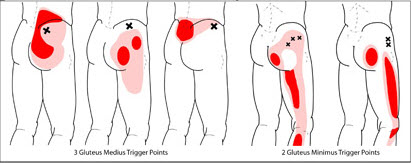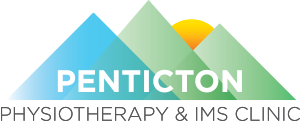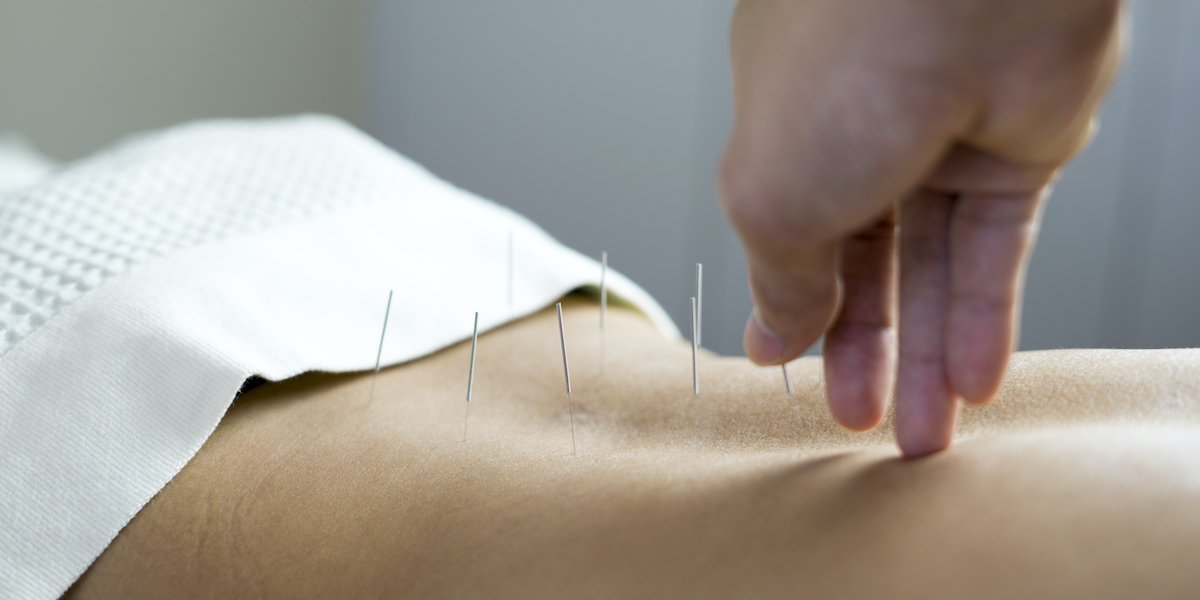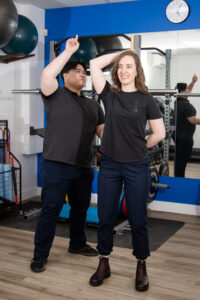You may have noticed our clinic’s name, Penticton Physiotherapy & IMS Clinic, and thought to yourself ‘what does IMS mean, and is it something that could help me?’. As you can imagine, it’s a question we get asked a lot, and is a treatment many of our therapists provide to help relieve pain in many areas of the body. Please read on to learn more about IMS and how we use it.
Intramuscular Stimulation – an introduction
Intramuscular stimulation, or IMS for short, was first accidently discovered in the early 1900’s, when doctors were injecting saline into patients and noticing that they had less pain afterwards. At that point, it was thought that the saline itself was helping to relieve the pain. However during one procedure, an administrator of the injection only realized that they had forgotten to put the saline into the needle after the injection was completed, but to their surprise the patient still felt pain relief, despite there being no saline present. It then became apparent that the needle itself was responsible for the pain relief, not the saline.
Fast forwards to the 1970’s and Dr Gunn, based in Vancouver, BC, formalized the treatment now known to the world as intramuscular stimulation (or IMS for short. The tern ‘dry needling’ is also used for this treatment). Currently used by thousands of therapists all over the world, IMS has become a mainstay in improving pain and helping people stay active and achieve their goals. In British Columbia, only a qualified physiotherapist may perform the IMS technique.
How does IMS work
IMS involves using a small acupuncture needle (although it is not acupuncture) and inserting it into tight, tender knots of muscle (known as ‘trigger points’), which are often present when you have pain or stiffness. The needle enters into the tight muscle, and causes what is known as a ‘twitch reflex’, which is a reflex within your neurological system. When you get this reflex, you can feel your muscle twitch and jump – this is very normal, and is an indicator that we are in the correct area for treatment.
When you get this twitch or jump, it helps your tight muscle to relax, it helps increase circulation to the area (which is important for healing) and it helps flush away pain-inducing chemicals from the area we are working on. It also can help other muscles to relax as well, as an added bonus.
When we relax your tight muscles with IMS, they stop pulling on bones and joints that they attach too, which makes them move better and cause less pain. The tight knots of muscles/ trigger points themselves are also known to be a cause of pain, and can refer pain to different parts of your body; if we relax the trigger point, it can stop the pain from being produced by it.

What problems can IMS help with?
The great thing about IMS is that it can help treat a plethora of different conditions across the whole body. Below is a list of some issues IMS can help with:
- Low back pain
- Neck pain
- Degeneration of joints
- Osteoarthritis
- Rotator cuff tears or irritations
- Plantar fasciitis
- Tennis & Golfer’s elbow
- Patellofemoral pain & knee pain
- Recovery from ankle sprains
- Trochanteric bursitis
- Whiplash after a car accident
- Headaches and migraines
- Shoulder dislocations
- Postural problems
- Slipped or bulging discs
- Sciatica
- Tendonitis
- Repetitive strain injuries
- Carpal tunnel syndrome
- Fibromyalgia
- Achilles tendonitis
- Iliotibial band syndrome
- Shin splints
- Frozen shoulder
- Temporomandibular (TMJ)/ jaw pain and conditions
- Recovery of movement after surgery or a broken bone
Over the years, our therapists have found that using IMS as part of their treatment regime has been a wonderful way to help people with a wide variety of problems reach their goals and manage their pain. To learn more about IMS, check out our full IMS page by clicking here. Ready to book a physiotherapy appointment and try IMS? Check out our online booking page here, or call our clinic today at 250-493-1152 to learn more about how we can help.






